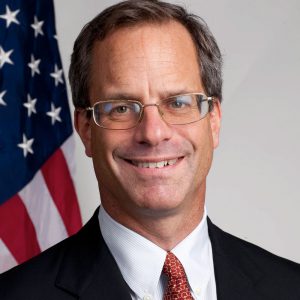New Swire-FPF Report: U.S. Surveillance Law, Safe Harbor, and Reforms Since 2013
 In the wake of critical decisions being handed down by the EU concerning the Safe Harbor laws (Schrems case) and U.S. Surveillance practices, Professor Peter Swire and the Future of Privacy Forum today have released a report titled “U.S. Surveillance Law, Safe Harbor, and Reforms Since 2013.”
In the wake of critical decisions being handed down by the EU concerning the Safe Harbor laws (Schrems case) and U.S. Surveillance practices, Professor Peter Swire and the Future of Privacy Forum today have released a report titled “U.S. Surveillance Law, Safe Harbor, and Reforms Since 2013.”
The new report responds to two requests to Swire bythe Belgian Privacy Commission: (1) explain whether U.S. surveillance law is fundamentally compatible with E.U. law, in the wake of the Schrems case striking down the EU/US Safe Harbor; and (2) explain U.S. reforms since the Snowden revelations began in 2013.
Swire will deliver his report December 18, speaking remotely, to a conference hosted by the Belgium Privacy Commission, which is studying these issues for the broader group of European privacy regulators in the Article 29 Working Party. The agenda is at: https://www.privacycommission.be/en/events/forum-consequences-judgment-schrems-case.
The Swire study addresses serious misunderstandings of U.S. national security laws, which were reflected in official statements made in the Schrems case. The soon-to-be released report covers three critical areas:
(1) The fundamental equivalence of the United States and EU member States as constitutional democracies. In the Schrems decision, the US was criticized for failing to ensure “a level of protection of fundamental rights essentially equivalent to that guaranteed in the EU legal order.” This chapter critiques that finding, instead showing that the United States has strict rule of law, separation of powers, and judicial oversight of law enforcement and national security surveillance.
(2) The Section 702 PRISM and Upstream programs are reasonable and lawful responses to changing technology. The Advocate General’s opinion in the Schrems case said that the PRISM program gave the NSA “unrestricted access to mass data” stored in the U.S., and that Section 702 enabled NSA access “in a generalised manner” for “all persons and all means of electronic communications.” This chapter refutes those claims. Instead, Section 702 operates with judicial supervision and subject to numerous safeguards and limitations.
(3) The U.S. Congress and executive branch have instituted over two dozen significant reforms to surveillance law and practice since 2013. The Schrems decision said that U.S. privacy protections must be evaluated in the “current factual and legal context,” but disregarded the numerous changes put in place since 2013. This chapter provides a readable explanation of each of these actions, which together constitute the biggest set of pro-privacy actions in U.S. surveillance law since creation of the Foreign Intelligence Surveillance Act in 1978.
To read the report, click here.
Peter Swire is the Huang Professor of Law and Ethics at the Georgia Tech Scheller College of Business, a Senior Counsel to Alston & Bird LLP, and Senior Fellow of the Future of Privacy Forum. He served as one of five members of President Obama’s Review Group on Intelligence and Communications Technology.
The Future of Privacy Forum (FPF) is a Washington, D.C.-based think tank that seeks to advance responsible data practices. The forum is led by Internet privacy experts Jules Polonetsky and Christopher Wolf and includes an advisory board comprised of leading figures from industry, academia, law and advocacy groups. For more information, visit www.fpf.org





